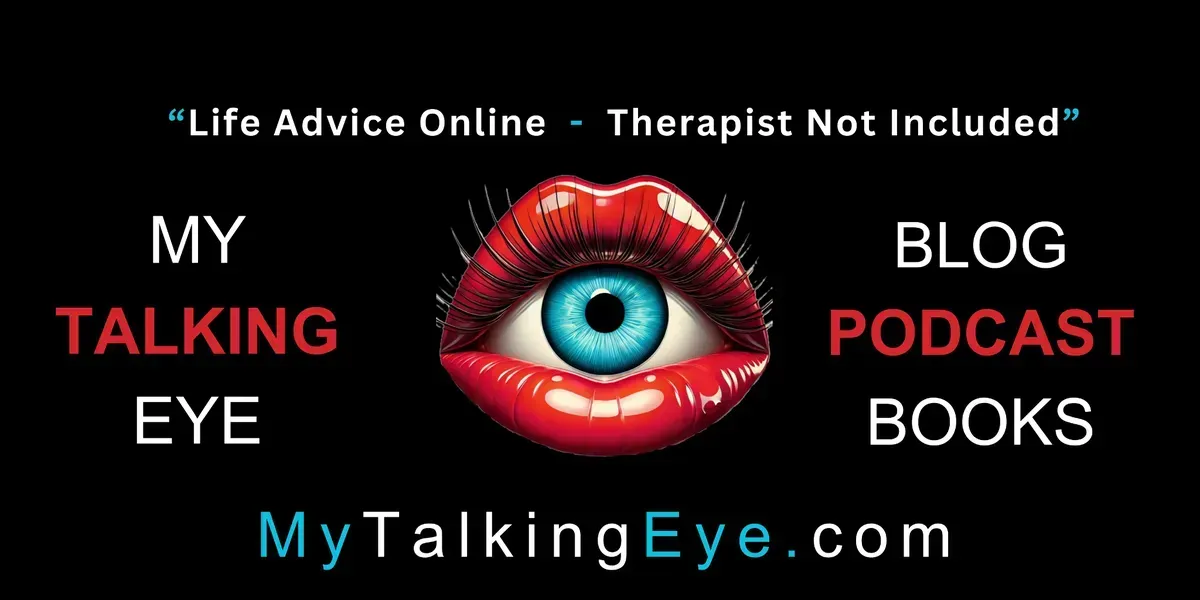

Mental Noise vs Physical Silence
Mental Noise vs Physical Silence
The Paradox of Noise: Finding Sleep When Silence Isn't Golden
For many people, the recipe for a good night's sleep includes a dark, quiet room. But for those of us living with sleep disorders or sensory processing differences, silence can be the enemy of rest. Sometimes, a noisy mind demands external sounds to find peace.
Living with a sleep disorder creates havoc with so many parts of being a human. One’s lifestyle can be greatly affected with poor sleep. Work or career can be easily impacted with improper decision-making, poor performance and more. You get it, right?
Everything can be turned upside down, wrong side out and backwards when fatigue is your enemy. Read on and learn more about life in fatigue lane.
When Mental Noise Drowns Out Physical Silence
Have you ever laid in perfect silence, only to find your thoughts growing impossibly loud? This phenomenon affects millions of people, especially those with:
Anxiety disorders: When worry amplifies in quiet environments
ADHD: When an understimulated brain creates its own distractions
Depression: When negative thought patterns loop endlessly in silence
PTSD: When hypervigilance interprets silence as a warning sign
For many, background noise serves as a form of "sensory anchor" that keeps the mind from drifting into troubling territory. The constant, predictable sound provides just enough stimulation to satisfy the brain's need for input without demanding full attention.
Living with Restless Leg Syndrome: When Your Body Won't Be Quiet
Restless Leg Syndrome (RLS) presents a unique challenge to sleep. This neurological disorder creates uncomfortable sensations in the legs, often described as crawling, pulling, or tingling, accompanied by an irresistible urge to move. For RLS sufferers, the physical "noise" of these sensations can make sleep elusive.
Many RLS patients find that a multi-faceted approach works best:
Medication such as Requip (ropinirole) to reduce symptoms
Environmental accommodations like background noise from a TV or fan
Consistent sleep schedule to help regulate the body's internal clock
Sensory distraction to shift focus away from leg sensations
The background noise serves a crucial purpose—it redirects attention from the body's sensations to external stimuli, creating mental space for medications to work effectively.
Other Sleep Disorders and the Comfort of Sound
RLS isn't the only sleep disorder that might benefit from thoughtful sound management:
Sleep Apnea
Those using CPAP machines often find the mechanical hum becomes a sleep trigger, and many report difficulty sleeping without it during power outages or travel.
Narcolepsy
People with narcolepsy may use strategic background noise to help maintain wakefulness during the day and improve sleep quality at night.
Insomnia
Chronic insomnia sufferers often develop elaborate sound environments to counter racing thoughts and anxiety about sleep itself.
Parasomnias (Sleepwalking, Night Terrors)
Some find that background noise helps anchor them to their surroundings, potentially reducing episodes.
Finding Your Sonic Sweet Spot
If you're struggling with sleep, experimenting with sound might help:
White noise machines: Provide consistent, non-distracting sound
Nature sounds: Rain, ocean waves, or forest ambience can be soothing
ASMR content: Soft, repetitive sounds trigger relaxation for some people
Podcasts or audiobooks: Set on a sleep timer, these provide mental engagement without visual stimulation
TV or streaming services: For many, familiar shows provide comfort and distraction
The Science Behind Sound and Sleep
Research suggests that consistent background noise can:
Mask disruptive environmental sounds
Create a stable sensory environment
Reduce sleep latency (time to fall asleep)
Improve subjective sleep quality
The key is finding sounds that your brain interprets as non-threatening and predictable. This allows your nervous system to relax its vigilance, opening the door to sleep.
Embracing Your Unique Sleep Needs
Sleep advice often focuses on "sleep hygiene" rules that don't account for neurological differences or sleep disorders. If conventional wisdom about quiet bedrooms doesn't work for you, you're not doing sleep wrong—you're responding to your unique nervous system needs.
For those with RLS and other sleep disorders, creating personalized sleep environments that may include strategic use of sound isn't just a preference—it's a necessary accommodation for a neurological reality.
Whatever helps you sleep is the right choice for you. Sometimes, a little noise is exactly what we need to quiet the louder disruptions from within.
What sounds help you sleep? Share your experiences in the comments below.

Mental Noise vs Physical Silence
Mental Noise vs Physical Silence
The Paradox of Noise: Finding Sleep When Silence Isn't Golden
For many people, the recipe for a good night's sleep includes a dark, quiet room. But for those of us living with sleep disorders or sensory processing differences, silence can be the enemy of rest. Sometimes, a noisy mind demands external sounds to find peace.
Living with a sleep disorder creates havoc with so many parts of being a human. One’s lifestyle can be greatly affected with poor sleep. Work or career can be easily impacted with improper decision-making, poor performance and more. You get it, right?
Everything can be turned upside down, wrong side out and backwards when fatigue is your enemy. Read on and learn more about life in fatigue lane.
When Mental Noise Drowns Out Physical Silence
Have you ever laid in perfect silence, only to find your thoughts growing impossibly loud? This phenomenon affects millions of people, especially those with:
Anxiety disorders: When worry amplifies in quiet environments
ADHD: When an understimulated brain creates its own distractions
Depression: When negative thought patterns loop endlessly in silence
PTSD: When hypervigilance interprets silence as a warning sign
For many, background noise serves as a form of "sensory anchor" that keeps the mind from drifting into troubling territory. The constant, predictable sound provides just enough stimulation to satisfy the brain's need for input without demanding full attention.
Living with Restless Leg Syndrome: When Your Body Won't Be Quiet
Restless Leg Syndrome (RLS) presents a unique challenge to sleep. This neurological disorder creates uncomfortable sensations in the legs, often described as crawling, pulling, or tingling, accompanied by an irresistible urge to move. For RLS sufferers, the physical "noise" of these sensations can make sleep elusive.
Many RLS patients find that a multi-faceted approach works best:
Medication such as Requip (ropinirole) to reduce symptoms
Environmental accommodations like background noise from a TV or fan
Consistent sleep schedule to help regulate the body's internal clock
Sensory distraction to shift focus away from leg sensations
The background noise serves a crucial purpose—it redirects attention from the body's sensations to external stimuli, creating mental space for medications to work effectively.
Other Sleep Disorders and the Comfort of Sound
RLS isn't the only sleep disorder that might benefit from thoughtful sound management:
Sleep Apnea
Those using CPAP machines often find the mechanical hum becomes a sleep trigger, and many report difficulty sleeping without it during power outages or travel.
Narcolepsy
People with narcolepsy may use strategic background noise to help maintain wakefulness during the day and improve sleep quality at night.
Insomnia
Chronic insomnia sufferers often develop elaborate sound environments to counter racing thoughts and anxiety about sleep itself.
Parasomnias (Sleepwalking, Night Terrors)
Some find that background noise helps anchor them to their surroundings, potentially reducing episodes.
Finding Your Sonic Sweet Spot
If you're struggling with sleep, experimenting with sound might help:
White noise machines: Provide consistent, non-distracting sound
Nature sounds: Rain, ocean waves, or forest ambience can be soothing
ASMR content: Soft, repetitive sounds trigger relaxation for some people
Podcasts or audiobooks: Set on a sleep timer, these provide mental engagement without visual stimulation
TV or streaming services: For many, familiar shows provide comfort and distraction
The Science Behind Sound and Sleep
Research suggests that consistent background noise can:
Mask disruptive environmental sounds
Create a stable sensory environment
Reduce sleep latency (time to fall asleep)
Improve subjective sleep quality
The key is finding sounds that your brain interprets as non-threatening and predictable. This allows your nervous system to relax its vigilance, opening the door to sleep.
Embracing Your Unique Sleep Needs
Sleep advice often focuses on "sleep hygiene" rules that don't account for neurological differences or sleep disorders. If conventional wisdom about quiet bedrooms doesn't work for you, you're not doing sleep wrong—you're responding to your unique nervous system needs.
For those with RLS and other sleep disorders, creating personalized sleep environments that may include strategic use of sound isn't just a preference—it's a necessary accommodation for a neurological reality.
Whatever helps you sleep is the right choice for you. Sometimes, a little noise is exactly what we need to quiet the louder disruptions from within.
What sounds help you sleep? Share your experiences in the comments below.
